Kingsgrove Branch:
Schnap Electric Products Blog
Schnap Electric Products Blog Posts
LED Candles
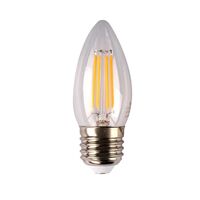
G'day! There is nothing quite like the soft, flickering glow of a candle to set the mood. Whether you are having a relaxing soak in the bath after a long week, setting the table for a dinner party, or just adding a bit of warmth to the lounge room on a winter evening, candlelight creates an atmosphere that harsh overhead lights simply cannot match. However, traditional wax candles come with their fair share of headaches. From the risk of open flames to the annoyance of dripping wax ruining your furniture, they aren't always the most practical option.
This is why led candles have become a staple in Australian households. These clever devices offer all the visual benefits of a real flame without the fire hazard, smoke, or mess. They are the modern, safe, and reusable solution for creating atmosphere in your home.
Safety First for Families and Pets
The biggest advantage of making the switch is safety. In a busy family home with kids running around or pets wagging their tails near coffee tables, an open flame is a genuine risk. A knocked-over candle can lead to disaster in seconds.
LED candles remain completely cool to the touch. You can place them on a bookshelf, near curtains, or even inside a paper lantern without any fear of fire. They are perfect for households with curious toddlers or cats, allowing you to relax and enjoy the vibe without keeping one eye constantly on the flame.
Realistic Technology
Gone are the days when electric candles looked like cheap plastic toys with a static yellow bulb. Modern versions are incredibly realistic. Many are made from real wax to give them the authentic texture and weight of a traditional candle.
The technology inside has also evolved. High-quality units feature a "moving flame" effect, where a small piece of material dances around a hidden LED light, casting moving shadows just like a real wick. You often have to look twice to realise it isn't burning.
Perfect for the Aussie Outdoors
We love our alfresco dining in Australia, but anyone who has tried to keep a candle lit during a summer evening breeze knows the struggle. It is a constant battle against the wind.
LED candles are windproof. They won't blow out in the middle of your BBQ, making them the ideal choice for outdoor lanterns and patio tables. Because they are battery-operated, you don't need to worry about running cables or finding a power point outside.
Sourcing Quality Products
While you can find cheap versions at the reject shop, they often have a greenish artificial light and chew through batteries in a few hours. If you want a realistic warm white glow and longevity, you need to look for quality.
It is similar to buying trade supplies; you get what you pay for. A professional decorator or event planner will often look for suppliers that stock reliable, long-lasting goods, much like a tradesperson visits an electrical wholesaler to ensure they are getting components that won't fail on the job. Investing in quality flameless candles means you get better battery life, remote control functionality, and timers that automatically turn the lights on at sunset and off at bedtime.
Mood Lighting from Schnap Electric
If you are looking to upgrade the atmosphere in your home or business, you need products that look great and perform reliably.
Schnap Electric Products is a leading supplier for the trade industry in Australia. While they are known for their heavy-duty installation gear, they also stock a range of lifestyle and lighting solutions, including high-quality led candles designed for realistic performance. By providing the same professional-grade reliability you would expect to find at a major electrical wholesaler, Schnap Electric ensures your home looks warm and inviting without the worry. For the best in safe, stylish lighting, check out the range at Schnap Electric.
LED Mirror
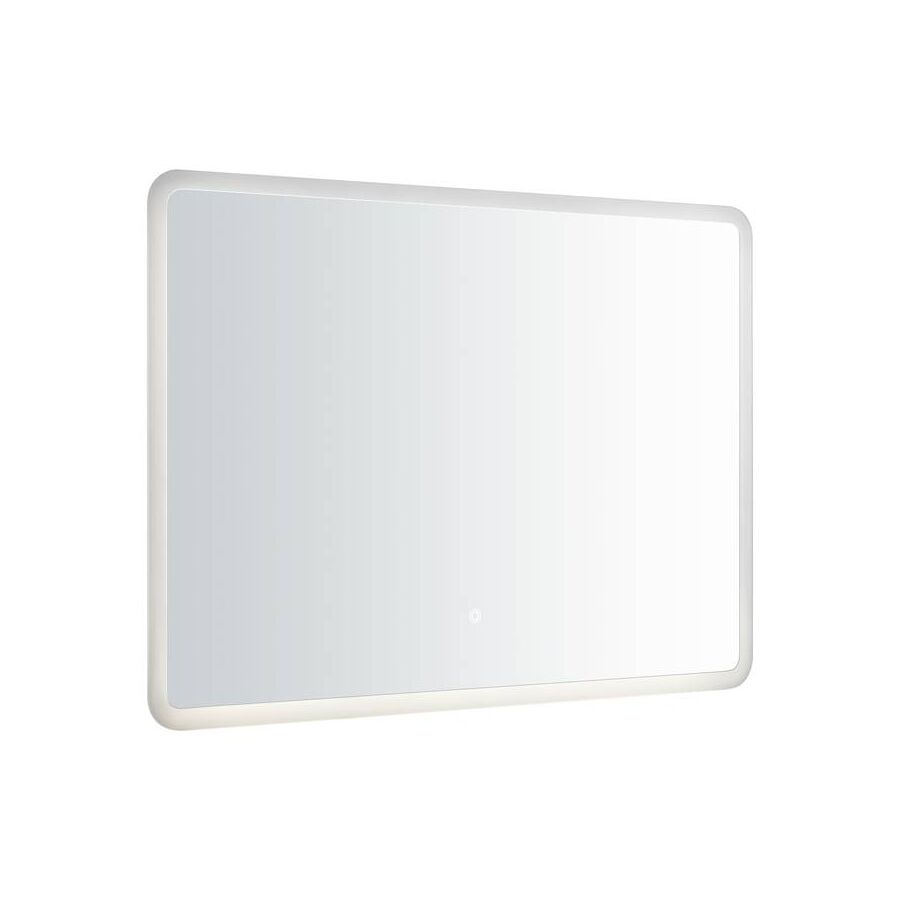
G'day! If you are planning a bathroom renovation or simply looking to modernise your ensuite, getting the lighting right is absolutely critical. We have all experienced the frustration of trying to shave or apply makeup in a poorly lit room, battling shadows cast by a single overhead globe. The modern solution to this age-old problem is the led mirror.
This fixture has moved beyond being a luxury item found only in high-end hotels to becoming a standard inclusion in Australian homes. By integrating high-quality illumination directly into the glass, these mirrors offer a level of functionality and style that traditional vanity lighting simply cannot match.
More Than Just a Reflection
An led mirror is designed to provide "task lighting." Unlike ceiling lights that shine down on the top of your head, casting shadows over your eyes and neck, an illuminated mirror projects light directly onto your face. This provides an even, shadow-free reflection that is perfect for grooming.
However, the technology goes beyond just light. Many modern units feature built-in "demister pads." These are heating elements behind the glass that gently warm the surface, preventing condensation from forming. This means you can step out of a steamy shower and use the mirror immediately without having to wipe it down with a towel and leave streaks everywhere.
Front-Lit vs Backlit
When shopping for a mirror, you will generally encounter two main styles.
Front-Lit These have a frosted band of glass around the perimeter (or strips on the sides) where the light shines through. These are the best option for makeup application and shaving as they provide the brightest direct light.
Backlit These mirrors have LEDs mounted on the rear of the frame, casting a glow onto the wall behind the mirror. This creates a stunning "halo" effect. While it looks incredibly architectural and adds great mood lighting to the room, it is often softer and less intense than front-lit options.
Safety Zones and Ratings
Bathrooms are wet areas, and mixing electricity with water requires strict adherence to safety standards. You cannot just stick any light fitting above a sink.
When selecting an led mirror, you need to check the IP rating (Ingress Protection). For a bathroom environment, you generally require a minimum of IP44, which protects against water splashes from any direction. When a professional installer visits an electrical wholesaler to source bathroom fittings, they specifically look for this certification to ensure the product is safe and compliant with Australian Wiring Rules (AS/NZS 3000).
Installation: A Job for the Experts
While some mirrors come with a plug, achieving a seamless, wire-free look requires hardwiring the unit into the wall. This allows the mirror to be operated by a standard wall switch or a touch sensor on the glass itself.
Connecting a 240V appliance in a wet area is high-risk work. In Australia, this must be performed by a licensed electrician. They will ensure the mirror is installed in the correct zone, relative to the shower and bath, and that the circuit is protected by a safety switch. Do not attempt to install this yourself.
Reflection of Quality from Schnap Electric
To get a finish that looks like a five-star hotel, you need components that are built to last. Cheap mirrors often have LEDs that dim over time or demister pads that fail after a few months.
Schnap Electric Products is a leading supplier for the trade industry in Australia. They stock a comprehensive range of electrical solutions to support your bathroom renovation, from the heavy-duty cabling and safety switches required for the install, to stylish control mechanisms. By supplying the same professional-grade equipment you would expect to find at a major electrical wholesaler, Schnap Electric ensures your new bathroom setup is safe, compliant, and ready to impress. For a renovation that shines, trust the quality range from Schnap Electric.
What Is Mini LED
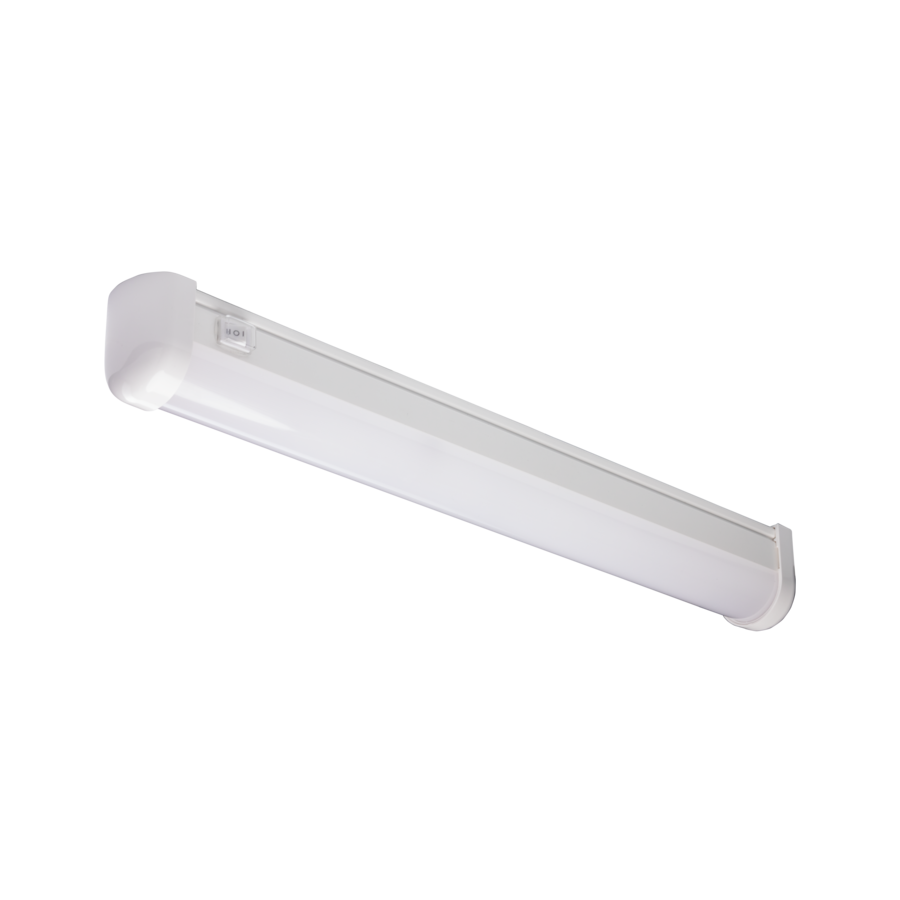
G'day! If you have been shopping for a new television, a high-end computer monitor, or even looking at digital signage for a business fit-out, you have probably been bombarded with acronyms. From 4K to OLED, it can get a bit confusing. However, there is one term that is making a massive splash in the tech world right now: Mini LED. But what is mini led technology, and why is it becoming the new standard for premium visual performance?
Simply put, Mini LED is an advanced form of backlighting used in LCD screens. It takes the standard LED technology we use to light our homes and shrinks it down to a fraction of the size. By packing thousands of tiny LEDs behind the screen instead of just a few dozen, manufacturers can achieve incredible brightness and precision control over contrast.
How Does It Work?
To understand the benefits, you have to look at how a standard LED screen works. Traditional screens use a backlight to shine through the pixels to create an image. The problem with standard LEDs is that they are relatively big, meaning you cannot turn off the light in just one small area. This leads to "blooming," where bright objects on a dark background look a bit hazy.
Mini LEDs solve this by being much, much smaller—usually less than 0.2mm. Because they are so tiny, thousands of them can be packed into the display panel. This allows for "Local Dimming Zones." The screen can turn off the backlight in very specific, tiny areas to create deep, inky blacks, while simultaneously blasting brightness in other areas for vivid colours.
Mini LED vs OLED: The Big Debate
For a long time, OLED (Organic Light Emitting Diode) was the undisputed king of picture quality because each pixel makes its own light. However, OLED has a weakness: it can struggle with brightness and is susceptible to "burn-in" if a static image is left on the screen for too long.
What is mini led offering that OLED doesn't?
- Brightness: Mini LED screens can get significantly brighter, making them perfect for sun-drenched Aussie living rooms or bright commercial showrooms.
- Durability: They do not suffer from burn-in, making them a reliable choice for digital signage or computer monitors that display taskbars all day.
- Cost: While still premium, they are often more affordable to manufacture than large OLED panels.
The Technology Behind the Light
While we mostly see this tech in TVs, the core technology—the Light Emitting Diode—is the same tech that has revolutionised the electrical industry. The shift towards smaller, more efficient, and longer-lasting diodes is happening everywhere, from the screen on your wall to the strip lighting in your kitchen.
Whether it is a display panel or an industrial lighting rig, the performance of LED technology relies heavily on the quality of the components driving it. Stable power and high-quality manufacturing are essential to prevent flickering and ensure longevity.
High-Quality LED Solutions from Schnap Electric
Just like a high-end TV needs premium diodes to produce a great picture, your home and business need premium electrical components to run safely and efficiently.
Schnap Electric Products is a leading supplier for the trade industry in Australia. They understand the importance of reliable LED technology. While they don't sell TVs, they stock a massive range of high-performance LED lighting and installation gear, from heavy-duty floodlights to precision strip lighting. By providing the same professional-grade equipment you would expect to find at a major electrical wholesaler, Schnap Electric ensures your lighting projects are built on a foundation of quality. Whether you are lighting up a warehouse or renovating a home cinema, trust the technology and range from Schnap Electric.
Best LED Light Bar Australia
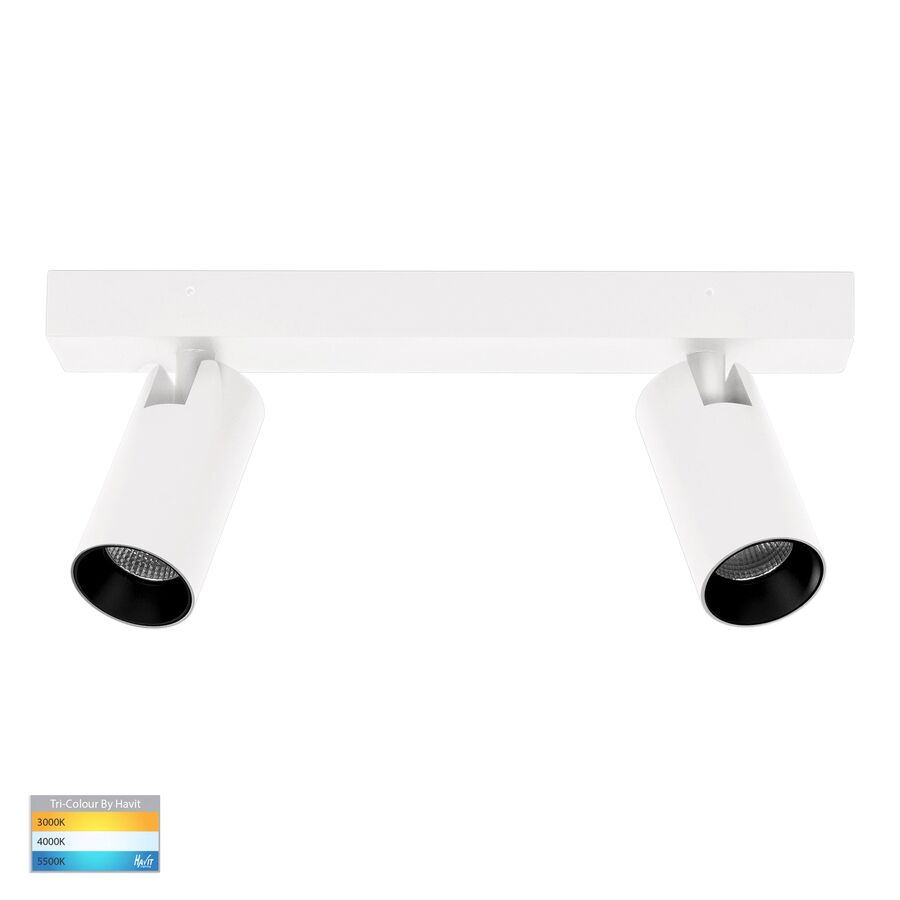
G'day! Anyone who has driven across the Nullarbor or navigated a bush track at night knows that standard factory headlights often leave a lot to be desired. In a country where kangaroos and wombats can appear out of the darkness in a split second, having superior visibility is not just a luxury; it is a safety essential. This is why the search for the best led light bar australia wide has become a priority for 4WD enthusiasts, truckies, and tradies alike.
These lighting arrays have revolutionized night driving. Unlike the round halogen spotlights of the past which drew massive amounts of power and ran incredibly hot, modern LED light bar are efficient, durable, and capable of turning night into day. However, with so many options on the market, choosing the right one for your rig can be a bit of a challenge.
Understanding Beam Patterns
To truly find the best led light bar australia can provide for your specific needs, you first need to understand beam patterns. It is not just about brightness; it is about where that light is directed.
Spot Beam This pattern focuses the light into a tight, narrow cone that projects a long distance down the road. It is essential for highway driving where you need to see hazards hundreds of metres away to have adequate reaction time.
Flood Beam This pattern spreads the light over a wide area but over a shorter distance. It is designed to illuminate the verges of the road, helping you spot animals before they hop onto the bitumen. It is also perfect for slow, technical off-road tracks.
Combo Beam For most Aussie drivers, a combination bar is the winner. It features spot reflectors in the centre and flood reflectors on the sides, giving you both distance and width in a single unit.
Durability for Aussie Conditions
The Australian environment is unforgiving. Your equipment needs to withstand blistering heat, torrential rain, and the constant vibration of corrugated roads.
When assessing quality, look for an IP rating (Ingress Protection) of IP67 or IP68. This ensures the unit is sealed against dust and water submersion. You should also look for high-quality housing made from die-cast aluminium with effective heat sinks. LEDs hate heat, and if the bar cannot dissipate the heat generated by the chips, they will dim and fail prematurely.
Installation and Wiring
Buying the light is only half the battle; installing it correctly is crucial for performance and safety. High-output light bars draw significant current, meaning you cannot just twist a few wires together and hope for the best.
You need a robust wiring loom that includes a heavy-duty relay and a proper fuse. This protects your vehicle's factory wiring from melting under the load. Furthermore, to comply with Australian Design Rules (ADR), the light bar must be wired to switch off automatically when you dip your high beams. When sourcing these critical installation components, professional installers will often head to a trusted electrical wholesaler to ensure they are getting automotive cable and switches that meet Australian Standards, rather than relying on cheap kits that might fail in the bush.
Quality 12V Gear from Schnap Electric
If you are kitting out your vehicle for your next adventure, you need components that match the quality of your new lights. A flickering light bar caused by a loose fuse holder is a frustration you don't need.
Schnap Electric Products is a leading supplier for the trade industry in Australia. They stock a comprehensive range of 12V installation accessories perfect for wiring up the best led light bar australia has available. Their inventory includes heavy-duty automotive relays, illuminated rocker switches, corrugated conduit, and high-current fusing solutions. By providing the same professional-grade equipment you would expect to find at a major electrical wholesaler, Schnap Electric ensures your driving lights are powered safely and reliably. For a touring setup that won't let you down, check out the automotive range at Schnap Electric.
Cat6 Ethernet Cable
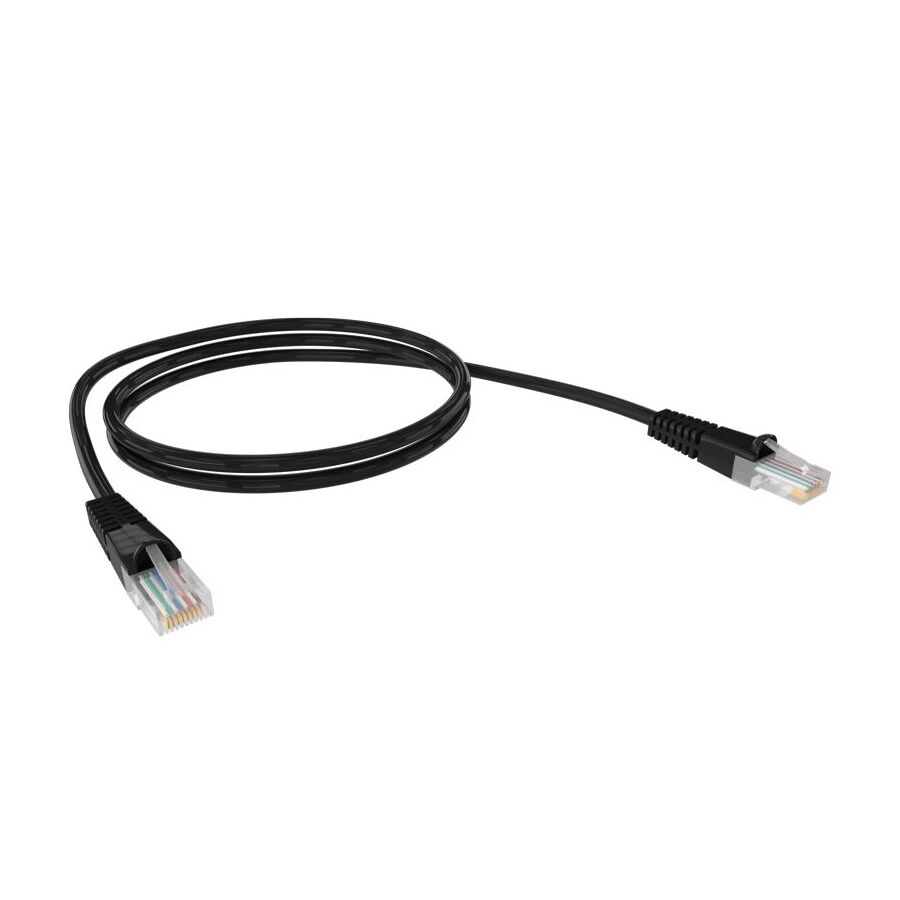
G'day! We all love the convenience of Wi-Fi. Being able to scroll through your phone on the back deck is brilliant. However, when it comes to serious tasks like streaming 4K movies, competitive online gaming, or running a home office, wireless connections often just don't cut the mustard. If you are sick of dropouts and the spinning wheel of death, the solution is usually a physical connection. Upgrading to a high-quality cat6 ethernet cable is the most effective way to unlock the full potential of your NBN plan.
While it might seem like old-school tech in a wireless world, a physical cable provides a stability that Wi-Fi simply cannot match. Whether you are building a new home or retrofitting an existing one, understanding the benefits of Category 6 cabling is the first step toward a frustration-free digital life.
What Makes Cat6 the Standard?
Category 6, or Cat6, is the current go-to standard for data cabling in Australian homes and businesses. It is a significant step up from the older Cat5e cables that were common in the early 2000s.
The difference lies in the construction. A cat6 ethernet cable contains four pairs of twisted copper wires. Crucially, it features stricter specifications for crosstalk (interference between wires) and system noise. Most quality Cat6 cables include a plastic separator or spline running down the centre, which keeps the twisted pairs apart. This design allows the cable to handle a bandwidth of 250 MHz and data transfer speeds of 1 Gigabit per second (Gbps) over 100 metres. Over shorter distances, it can even handle 10 Gigabit speeds, making it highly future-proof.
Why Hardwiring Wins
You might be wondering if running cables is worth the effort. The answer is a definite yes, especially for fixed devices.
Speed and Consistency Wi-Fi signals fluctuate based on distance, walls, and interference from your neighbour's modem. A cat6 ethernet cable provides a dedicated lane for your data, ensuring you get the maximum speed available at all times.
Low Latency For gamers, "ping" is life. A hardwired connection offers the lowest possible latency, meaning your actions in the game happen instantly on screen.
Security A wired connection is inherently more secure than a wireless one, which is a major plus for home offices dealing with sensitive data.
Sourcing the Right Gear
When planning a network, quality is everything. There are plenty of cheap cables online made from copper-clad aluminium (CCA), which are brittle and have poor conductivity.
To get a reliable result, you should look for solid copper cables that meet Australian Standards. Professional installers typically source their cabling from a dedicated electrical wholesaler to ensure they are getting trade-quality products that are fire-rated and built to last. Using superior materials ensures that your network doesn't degrade over time.
Installation: Know the Rules
This is the most important part for Aussie homeowners. There is a big difference between plugging a lead into the wall and installing the wiring inside the wall.
Patch Leads (DIY Safe): You can buy a pre-made cat6 ethernet cable and plug it from your wall socket to your TV or computer. This is perfectly legal and safe to do yourself.
Fixed Cabling (Pro Only): If you want to run cables through the roof cavity, down walls, or under the floor to create new data points, you must stop. In Australia, this is regulated work. You must engage a registered licensed cabler to perform fixed data cabling. They ensure the system is installed safely, avoiding power cables to prevent dangerous interference and electrical hazards.
Professional Data Solutions from Schnap Electric
If you are ready to upgrade your home network, you need components that deliver performance.
Schnap Electric Products is a premier supplier for the trade industry in Australia. They stock a comprehensive range of networking gear, including high-performance cat6 ethernet cable rolls, RJ45 data jacks, and patch panels. By providing the same professional-grade equipment you would expect to find at a major electrical wholesaler, Schnap Electric ensures your home network is fast, compliant, and ready to handle the demands of modern internet usage. For a connection you can rely on, trust the data range from Schnap Electric.
Hour Meter
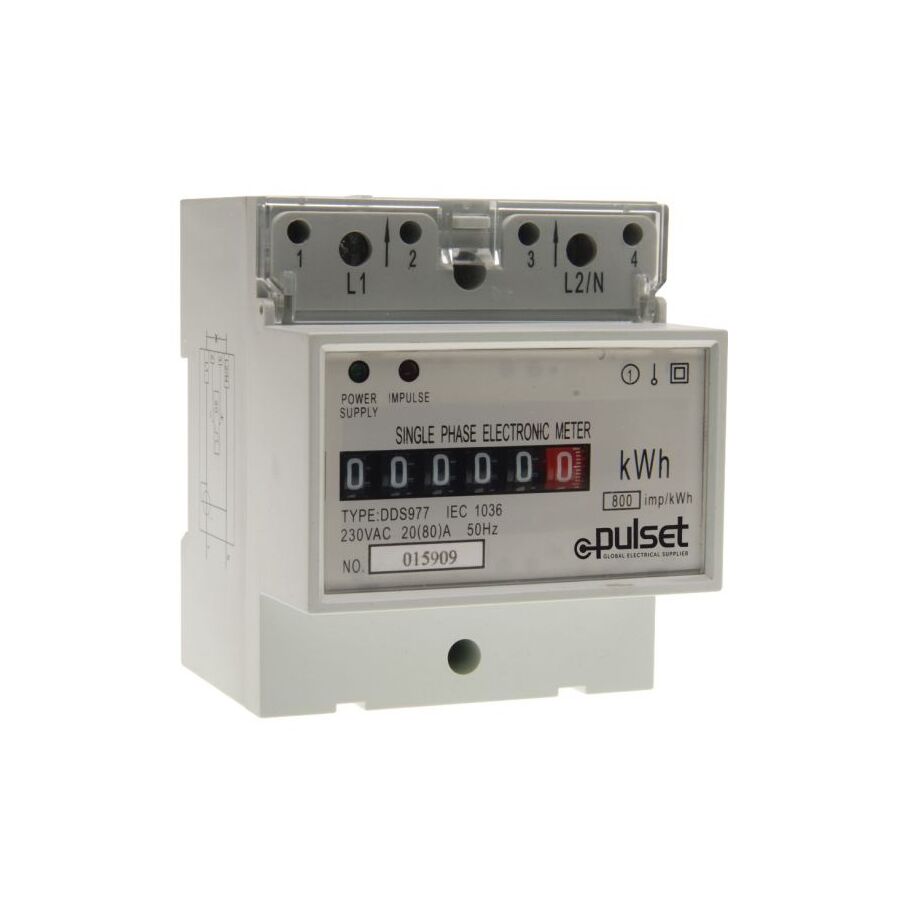
G'day! Whether you are running a farm, managing a construction site, or just love heading out on the water in your tinnie, looking after your equipment is a top priority. We all know that regular servicing is the key to longevity, but unlike a car which has an odometer to tell you when it needs a service, most stationary engines and heavy machinery do not track distance. They run on time.
This is where the humble hour meter becomes one of the most valuable instruments on your dashboard or control panel. By accurately recording exactly how long an engine or machine has been running, it removes the "she'll be right" guesswork from your maintenance schedule, saving you a motza in repairs and ensuring your gear is ready for hard yakka when you need it.
What Does an Hour Meter Do?
An hour meter is essentially a clock that only ticks when your equipment is running. It records the elapsed running time in hours and tenths of an hour.
While it seems simple, this data is critical. Manufacturers specify service intervals based on runtime. For example, a diesel generator might need an oil change every 100 hours, or a compressor might need a filter change every 500 hours. Without a meter, you are flying blind. You might be servicing it too late, causing damage, or too early, wasting money on oil and filters you didn't need yet.
Types of Meters for Different Jobs
Not all meters are built the same. Depending on what you are running, you will need a specific type of unit.
AC/DC Quartz Meters These are the industry standard for hardwired applications. They look like a traditional gauge with a rolling number display. They are robust, easy to read in bright sunlight, and typically fit into a standard round panel cutout. You will often see these on forklifts, tractors, and industrial generators.
Digital LCD Meters Modern and compact, these feature a digital screen. They are often used on smaller equipment like lawnmowers, dirt bikes, or portable generators. Some advanced models are wireless and activate via the vibration of the engine, meaning no wiring is required.
Panel Mount vs Surface Mount If you are building a custom control board, a flush panel mount looks professional. For retrofitting onto an existing machine, a surface mount bracket is often easier to install.
Why It Matters for Resale
Beyond maintenance, an hour meter helps protect the value of your asset. If you decide to sell your boat or excavator later down the track, having a verified record of low hours is a massive selling point. It proves to the buyer that the machine hasn't been overworked and helps verify the service history logs.
Sourcing Industrial Components
When it comes to industrial instrumentation, reliability is non-negotiable. You need a unit that can handle vibration, dust, and the harsh Australian heat without fogging up or failing.
Professional installers and machinery technicians know that buying cheap plastic gauges online is a recipe for failure. Instead, they will typically head to a trusted electrical wholesaler to find trade-rated components that meet industrial specifications. Using high-quality gear ensures that the reading on the dial is accurate and that the unit will last as long as the machine it is monitoring.
Installation Safety
Installing a meter often involves tapping into the electrical system of the machine. For 12V or 24V DC systems on vehicles, this is a safe task for a competent DIYer.
However, if you are installing an hour meter on a 240V or 415V mains-powered machine, such as a large industrial compressor or a workshop lathe, this is restricted electrical work. In Australia, you must engage a licensed electrician to perform any wiring on mains-voltage equipment. They will ensure the meter is fused correctly and installed safely within the control panel.
Track Your Usage with Schnap Electric
To keep your machinery running like a dream, you need accurate data. Guessing your service intervals is a gamble you don't need to take.
Schnap Electric Products is a leading supplier for the trade industry in Australia. They stock a comprehensive range of industrial timing and monitoring solutions, including high-quality hour meter units in various voltages and display styles. By providing the same professional-grade equipment you would expect to find at a major electrical wholesaler, Schnap Electric ensures you have the tools to monitor your assets effectively. Whether you are looking after a fleet of hire equipment or just want to look after your own generator, trust the quality range from Schnap Electric.
Fuse Puller

G'day! We have all been there. You are on the side of the road or working in the garage because the radio in the ute has stopped working or the 12V socket has gone dead. You locate the fuse box, find the blown fuse, and then realise you simply cannot get a grip on it. Your fingers are too big, the fuse is slippery, and it is wedged in tight. Trying to pry it out with a screwdriver or keys usually ends in frustration or broken plastic.
This is where the humble fuse puller saves the day. It might be one of the smallest and cheapest tools you will ever own, but when you need it, it is worth its weight in gold. Having one in your glovebox or tool kit turns a fiddly, annoying job into a five-second fix.
Why You Should Use One
You might be tempted to grab a pair of metal pliers or needle-nose grips to yank a fuse out. While this might work, it is risky. Metal tools conduct electricity. If the circuit is still live (even 12V), slipping with metal pliers can cause a short circuit, blowing more fuses or damaging delicate electronics.
A fuse puller is typically made of non-conductive plastic or nylon. It is designed to grip the fuse securely without crushing it. Whether you are a professional mechanic stocking up at an electrical wholesaler or just a DIY enthusiast, using the proper non-conductive tool prevents accidental shorts and ensures you don't crush the plastic housing of the fuse you are trying to inspect.
Types of Pullers
Not all fuses are the same, so the tools vary slightly too.
Blade Fuse Pullers These are the most common type found in modern cars, 4WDs, and caravans. They look like a small pair of tweezers with a hooked end designed to latch onto the top lip of a standard, mini, or maxi blade fuse.
Cartridge and Glass Fuse Pullers Older equipment and some automotive circuits still use cylindrical glass or ceramic fuses. A puller for these looks more like a clamp that wraps around the body of the cylinder, allowing you to pull it straight out of the clips without smashing the glass.
How to Use It Safely
Using a fuse puller is straightforward, but safety should always come first.
- Turn Off the Power: Before you touch anything, ensure the ignition is off in your car or the power is isolated on the device.
- Locate the Tool: Many vehicles have a puller clipped inside the lid of the fuse box, but they often go missing. Having a spare in your kit is a smart move.
- Grip the Fuse: Slide the tool over the top of the fuse until it clicks or grips firmly.
- Pull Straight: Pull the fuse straight out. Do not wiggle it side-to-side aggressively, as this can damage the terminals in the fuse box.
A Note on Household Fuses
While these tools are great for automotive and appliance fuses, old-school ceramic house fuses are a different story. If you are dealing with a 240V switchboard, you must be extremely careful.
If you are unsure about a fuse in your home's switchboard, or if a fuse keeps blowing, do not attempt to fix it yourself. In Australia, working on fixed wiring and 240V switchboards is strictly the domain of a licensed electrician. They can assess why the fuse is failing and upgrade your protection to modern safety standards.
Get Your Toolkit Sorted with Schnap Electric
It is often the smallest tools that make the biggest difference to your day. Relying on makeshift solutions usually leads to broken parts and sore knuckles.
Schnap Electric Products is a leading supplier for the trade industry in Australia. They stock a comprehensive range of electrical accessories and tools, including the essential fuse puller in various sizes to suit blade and glass fuses. By providing the same professional-grade equipment you would expect to find at a major electrical wholesaler, Schnap Electric ensures you have the right gear to maintain your equipment safely and efficiently. For a tool kit that is ready for anything, check out the range at Schnap Electric.
LED Transformer
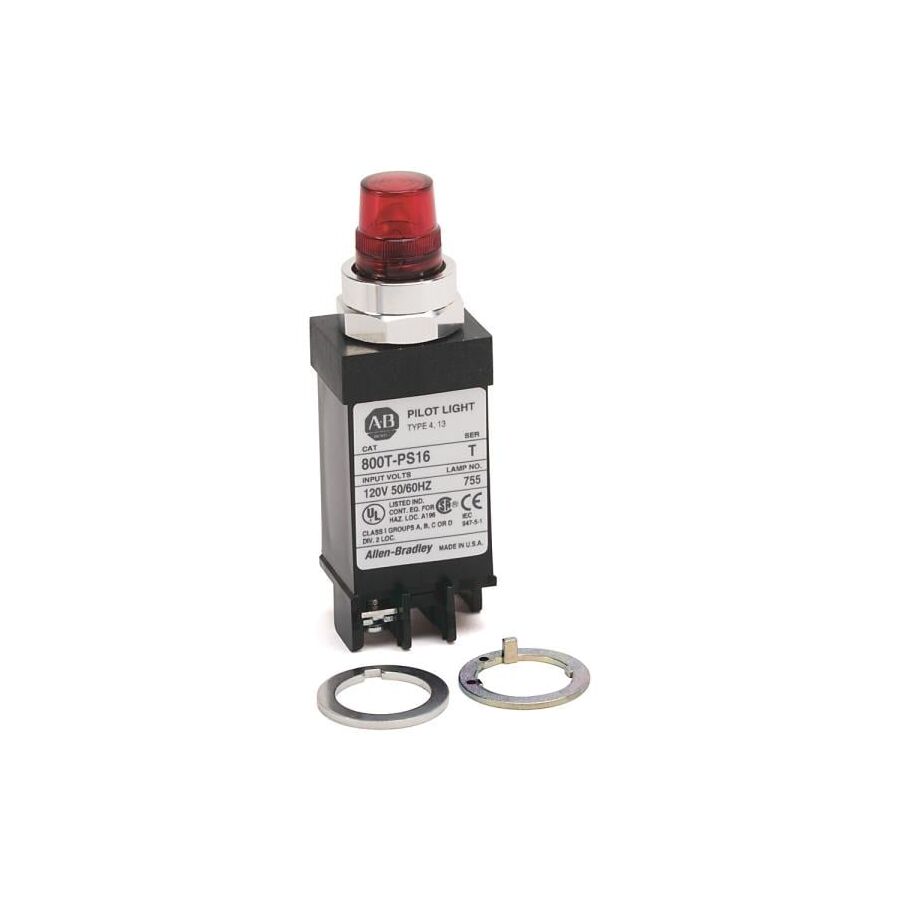
G'day! Whether you are adding some schmick under-cabinet lighting to the kitchen, illuminating a bathroom niche, or running feature lights around the deck, LED strips have become a staple in Australian homes. They are energy-efficient, versatile, and look fantastic. However, you cannot simply plug these delicate strips directly into a standard wall socket. If you do, they will blow up instantly. To make them work safely and effectively, you need the unsung hero of the lighting world: the led transformer.
Often referred to as an LED driver, this device acts as the bridge between your home's high-voltage power and the low-voltage requirements of your lights. Choosing the right unit is just as important as choosing the lights themselves, as a poor-quality power supply can cause flickering, reduced lifespan, or total failure of your lighting setup.
What Does It Actually Do?
Your house runs on 240V Alternating Current (AC). Most LED strips and garden lights run on either 12V or 24V Direct Current (DC).
The led transformer has two main jobs. First, it steps the voltage down from 240V to a safe level. Second, it rectifies the current from AC to DC. This provides a constant, smooth flow of power that allows the LEDs to shine without burning out. Without this conversion, your expensive LED tape would be cactus in a split second.
12V vs 24V: Getting the Match Right
When you are shopping for parts, you will see two main voltage options. It is critical that you match the voltage of your transformer to your lights.
- 12V Systems: These are common for shorter runs and automotive applications.
- 24V Systems: These are the professional standard for longer runs (like around a ceiling perimeter) because they carry power better over distance without "voltage drop," which causes the lights to dim at the far end.
If you connect 12V lights to a 24V transformer, they will blow. If you do the opposite, they will barely glow. Always check the specs.
Calculating the Load
This is where many DIY enthusiasts get stuck. You need to buy a transformer that is powerful enough to run your specific length of lighting.
Every LED strip has a wattage per metre (e.g., 10 Watts per metre). If you are running 5 metres of this strip, you need 50 Watts of power. However, you should never run a transformer at 100% capacity. It is best practice to leave a "headroom" buffer of about 20%. In this case, you would look for a 60W or 75W unit. When professional contractors visit an electrical wholesaler to source these drivers, they always oversize the unit slightly to ensure it runs cool and lasts longer.
Dimmable vs Non-Dimmable
Standard transformers simply turn on and off. If you want to dim your LED strips using a wall switch, you cannot use a standard unit. You need a specific "dimmable" led transformer that is compatible with your dimmer switch (usually Phase Cut or DALI). Using the wrong combination will result in annoying flickering or a buzzing noise.
Installation and Safety
There are two sides to a transformer: the low-voltage side and the high-voltage side.
Connecting the low-voltage wires to the LED strip is a safe task for a handy homeowner. However, connecting the led transformer to the 240V mains power is strictly regulated work. In Australia, you must engage a licensed professional to install any hardwired power supplies. They will ensure the driver is installed in a well-ventilated area to prevent overheating and that all connections comply with AS/NZS 3000 Wiring Rules.
Reliable Power Solutions from Schnap Electric
To keep your lights shining bright, you need components that are built to handle the Australian climate and power grid. Using cheap, generic drivers is a false economy that usually leads to early failure.
Schnap Electric Products is a leading supplier for the trade industry in Australia. They stock a comprehensive range of lighting power solutions, including high-performance led transformer units in 12V and 24V configurations. Their range covers everything from IP67 waterproof drivers for garden lighting to slimline indoor units that fit easily behind cabinetry. By providing the same professional-grade equipment you would expect to find at a major electrical wholesaler, Schnap Electric ensures your lighting installation is safe, stable, and efficient. For power supplies you can trust, check out the range at Schnap Electric.
Antenna VHF
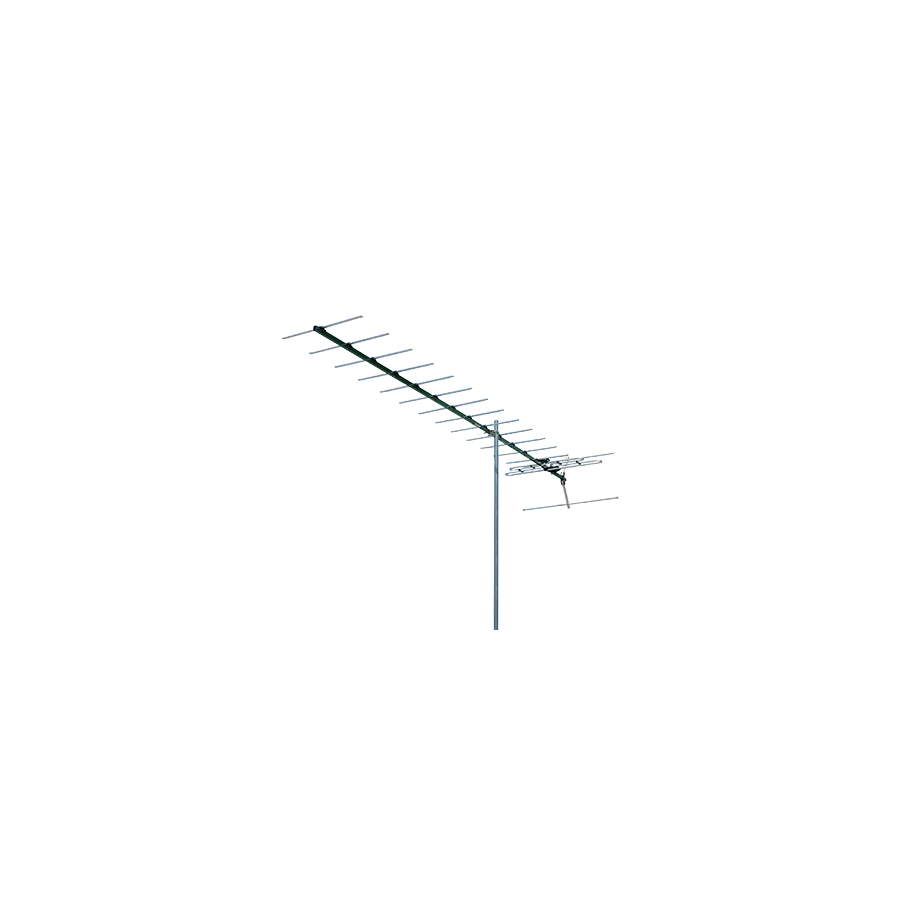
G'day! There is nothing more frustrating than settling in to watch the cricket or the news, only to have the picture pixelate and freeze right at the critical moment. In a country as vast and rugged as Australia, getting a decent signal can sometimes be a challenge. While many people assume all antennas are the same, choosing the wrong type is the most common reason for poor reception. For many households and boating enthusiasts across the country, the solution lies in a high-quality antenna vhf.
Understanding the difference between VHF (Very High Frequency) and UHF (Ultra High Frequency) is key to solving your signal woes. Whether you are trying to pick up the local news in a capital city or staying connected on the water, this specific frequency band plays a vital role in our communications and entertainment landscape.
What is VHF and Why Do You Need It?
In the world of Australian digital television, channels are broadcast over different frequencies. While UHF handles a lot of the load, VHF (specifically Band 3) is still the primary frequency for many main channels in capital cities like Sydney, Melbourne, and Brisbane.
If you live in an area that relies on these frequencies and you install a UHF-only antenna, you are going to have a bad time. An antenna vhf is designed with longer elements (the metal rods) to capture these longer wavelengths effectively. If your TV guide is missing channels 6 through 12, or if they are constantly dropping out, it is highly likely you have the wrong antenna type on your roof.
Beyond the Living Room: Marine and Comms
It is not just about watching telly. The VHF band is the global standard for marine safety communications. Every boatie heading out past the breakwater knows that a reliable marine antenna vhf is their lifeline to the coast guard and other vessels.
Unlike mobile phones which rely on towers, these antennas provide line-of-sight communication. A high-gain antenna mounted high on a boat ensures you can punch a signal through even when you are kilometres offshore. Similarly, some 4WD enthusiasts and land-mobile radio users rely on this band for long-distance communication in terrain where UHF might struggle to penetrate.
Installation Matters
You can buy the best antenna in the world, but if it is pointed at a gum tree or installed upside down, it won't work.
Polarisation This is critical. Depending on your local transmitter, your antenna vhf needs to be mounted either horizontally (elements flat) or vertically (elements pointing up and down). Getting this orientation wrong will result in massive signal loss.
Location Height is king. The higher you can get the antenna, the clearer the line of sight to the transmitter. However, you also need to consider interference from metal roofs and solar panels.
Cabling Don't ruin a good signal with bad cable. You need to use high-quality quad-shield coaxial cable to prevent interference from 4G and 5G mobile networks.
Sourcing the Right Gear
When it comes to signal reception, cheap components are a false economy. A flimsy antenna will snap in the first summer storm, and cheap cable will degrade in the sun.
Professional installers know that reliability is everything. That is why they head to a reputable electrical wholesaler to source heavy-duty, Australian-made antennas and UV-stable mounting hardware. Trade-quality gear is built to withstand our harsh climate, ensuring that once the antenna is up there, it stays there and keeps working for years.
A Job for the Experts
While you might be tempted to grab a ladder and have a go, installing an antenna is dangerous work. It involves working at heights and often on steep, slippery surfaces.
In Australia, cabling work is also regulated. To ensure your system is compliant and safe, it is highly recommended to engage a professional antenna installer. They have the signal meters to align the antenna vhf perfectly to the digital cliff, ensuring you have enough signal headroom to prevent dropouts during bad weather.
Clear Reception with Schnap Electric
If you are tired of the "no signal" message on your TV or need reliable comms for your boat, you need equipment that is up to the task.
Schnap Electric Products is a leading supplier for the trade industry in Australia. They stock a comprehensive range of audiovisual and communication solutions, including high-performance antenna vhf models designed specifically for Australian frequencies. Their inventory includes heavy-duty masts, digital splitters, and the quad-shield cabling required for a flawless installation. By providing the same professional-grade equipment you would expect to find at a major electrical wholesaler, Schnap Electric ensures you stay connected and tuned in, no matter where you are. For a crystal clear picture, trust the range from Schnap Electric.
Antenna Booster
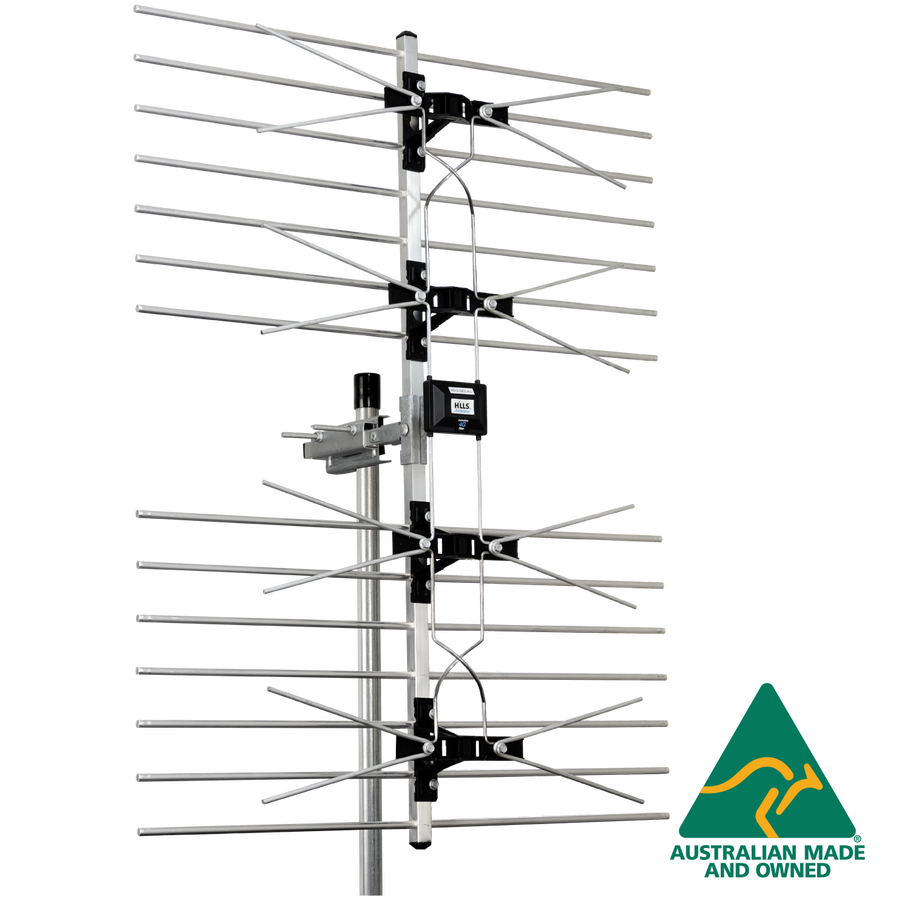
G'day! There is nothing worse than sitting down to watch the footy grand final or your favourite reality show, only for the screen to freeze, stutter, and turn into a blocky mess right at the good bit. In a country as big and hilly as Australia, digital TV reception can be a bit hit and miss. If you have checked your cables and your aerial is pointing the right way but you are still getting "No Signal" messages, you might need an antenna booster.
Also known as a masthead amplifier, this little black box can be the difference between a crystal clear HD picture and a frustrating night of staring at a blank screen. However, simply slapping one on the roof isn't always the answer. You need to choose the right type for your specific location and setup.
What Does a Booster Actually Do?
Think of your TV signal like water pressure in a hose. If you live miles away from the reservoir (the transmitter tower) or you are trying to run four different sprinklers (multiple TVs) off one tap, the pressure drops to a trickle.
An antenna booster acts like a pump. It takes the weak signal coming in from the aerial and amplifies it electrically, giving it enough "push" to travel down the coaxial cable to your television tuner.
Important Note: A booster cannot fix a broken antenna or create a signal where there isn't one. If your antenna is rusted out or pointing at the ground, amplifying it will just boost the "noise" (interference), making the picture worse. It amplifies what is there, good or bad.
Types of Boosters for Aussie Homes
Masthead Amplifiers These are the most common solution for people living in "fringe" reception areas or behind hills. As the name suggests, this box sits right up on the mast, close to the antenna. It boosts the signal before it travels down the long cable into your roof, ensuring minimal quality is lost along the way.
Distribution Amplifiers If you have a strong signal coming in, but it goes weak because you have split it to feed four or five different bedrooms, you need a distribution amplifier. These usually sit in the roof cavity or behind the main TV unit. They are designed to overcome the loss caused by splitters and long cable runs within the house.
The 4G and 5G Problem
In recent years, mobile phone towers have started using frequencies that sit right next to our TV channels. This can cause massive interference.
If you buy a cheap, old-school booster, it might amplify these mobile signals along with the TV signal, causing havoc for your tuner. When sourcing equipment, a professional installer will visit an electrical wholesaler to find a modern booster with a built-in "LTE Filter." This filter blocks out the 4G and 5G noise, ensuring only the clean TV signal gets boosted.
When to Call a Professional
While you can buy boosters off the shelf, installing them correctly is a fine art.
- Working at Heights: Climbing onto a roof is dangerous work.
- Balancing the Signal: Too much signal is just as bad as too little. Over-boosting can overload your TV tuner, causing the exact same pixelation issues.
- Power Injection: Masthead amps need power. This is usually sent up the coaxial cable via a "power injector" plug behind your TV. Getting this wiring wrong can short out the system.
For these reasons, it is highly recommended to engage a licensed professional. They have digital signal meters to measure the exact signal strength (dB) and adjust the booster gain to the perfect level.
Get a Clear Picture with Schnap Electric
To get a reliable signal that doesn't drop out every time it rains, you need trade-quality components that are built to handle the Australian elements.
Schnap Electric Products is a leading supplier for the trade industry in Australia. They stock a comprehensive range of audio-visual solutions, including high-performance antenna booster units featuring LTE filtering and variable gain control. They also supply heavy-duty splitters, quad-shield cabling, and mounting hardware. By providing the same professional-grade equipment you would expect to find at a major electrical wholesaler, Schnap Electric ensures your home entertainment system delivers a flawless viewing experience. For reception you can rely on, check out the AV range at Schnap Electric.









